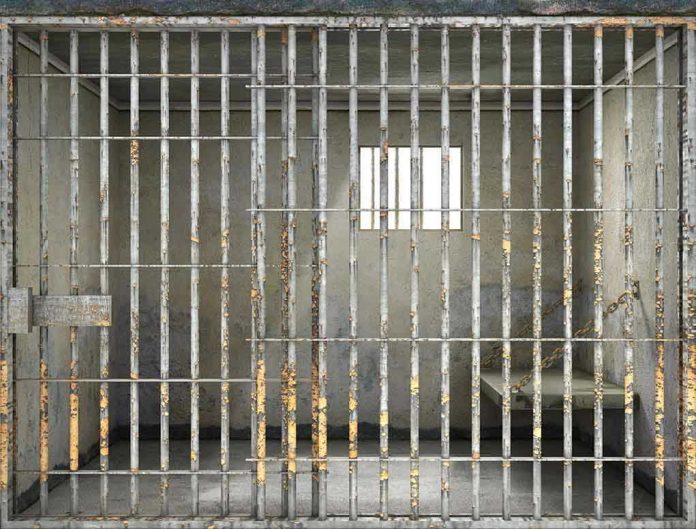
Five Republican-led states are plotting to replicate Florida’s infamous “Alligator Alcatraz” detention site—proving yet again that when the federal government drags its feet, the states will take security into their own hands, even if it means building a fortress surrounded by alligators.
At a Glance
- Homeland Security Secretary Kristi Noem confirms five GOP-led states are planning detention sites modeled after Florida’s “Alligator Alcatraz.”
- Florida’s facility operates in remote wetlands, combining natural barriers and high security—drawing both praise and outrage.
- The Department of Justice filed motions to prevent construction delays, signaling ongoing legal and political war over these facilities.
- Advocates claim human rights abuses; conservative leaders say the facilities are vital to restoring law and order ignored for years.
States Step Up as Washington D.C. Stalls
Homeland Security Secretary Kristi Noem has revealed that five Republican-led states are in serious talks to create their own high-security immigration detention centers, taking a page straight out of Florida’s playbook. Florida’s “Alligator Alcatraz”—a near-mythical fortress plunked right in the alligator-ridden wetlands—opened earlier this year under Governor Ron DeSantis’s orders. The message from these states is clear: if Washington won’t secure the border, they will. Noem, flanked by state officials in Tampa, made it clear that she’s working directly with governors eager to replicate Florida’s model and sidestep the bureaucratic molasses in D.C.
While critics howl about due process and civil rights, supporters argue that these sites are common sense—using both geography and grit to make sure illegal immigrants stay put pending deportation. Noem’s announcement comes as the DOJ moves to prevent any construction delays, making it evident that the legal and political battle lines are being drawn in real time.
Alligator Alcatraz: Fortress or Flashpoint?
Florida’s Alligator Alcatraz didn’t get its name by accident. This facility is an island of concrete and barbed wire, built in an isolated swamp notorious for its reptilian inhabitants. It’s designed to detain those caught violating immigration laws, pending removal or further legal action. Supporters see it as a masterstroke: leveraging natural topography and robust security to house detainees, out of sight and out of reach for those who would circumvent the law. The DOJ has been forced to play referee, recently filing motions to keep the construction and operation on track despite a chorus of lawsuits and activist outrage.
This isn’t the first time states have taken immigration enforcement into their own hands. Arizona and Texas experimented with their own centers during previous border surges, but the sheer symbolism—and irony—of Alligator Alcatraz has captured the public’s attention like nothing before. The Trump administration’s earlier expansion of detention policy set the groundwork, but this new era is all about states flexing their autonomy, with Florida leading the pack and others scrambling to catch up.
Political Fistfights and Legal Firestorms
The rush to build more Alligator Alcatraz-style facilities has ignited fierce debate. On one side, Republican leaders are tired of endless border chaos and federal impotence. They argue that these sites deliver what sanctuary cities never can: real security and decisive action. On the other, advocacy groups and Democrats decry the move as a dangerous overreach that risks trampling the Constitution and basic human rights. The DOJ’s involvement signals that the courts will be busy for months, if not years, as legal battles over state authority, civil liberties, and detention conditions rage on.
For local communities, the impact is mixed. Some welcome the economic boost from new jobs and construction contracts. Others worry about their towns becoming synonymous with detention and controversy. Private prison companies and security contractors, meanwhile, are licking their chops at the prospect of lucrative state deals.
What Comes Next for Immigration Enforcement?
As of mid-July 2025, Florida’s Alligator Alcatraz is fully operational, and other states are in the planning and negotiation stages. No new construction has begun elsewhere yet, but the intent is there—and with a newly emboldened Trump administration, there’s little doubt the momentum will continue. The DOJ’s recent moves to prevent construction delays highlight just how serious the feds are about keeping these sites up and running.
The broader impact is already being felt: Republican states are asserting their right to secure their borders, while critics warn of a slippery slope toward overreach and abuse. The precedent set here could define the next decade of immigration enforcement—a future where states, not Washington, call the shots on who stays and who goes. For many Americans tired of watching their communities pay the price for federal dithering, it’s about time.







